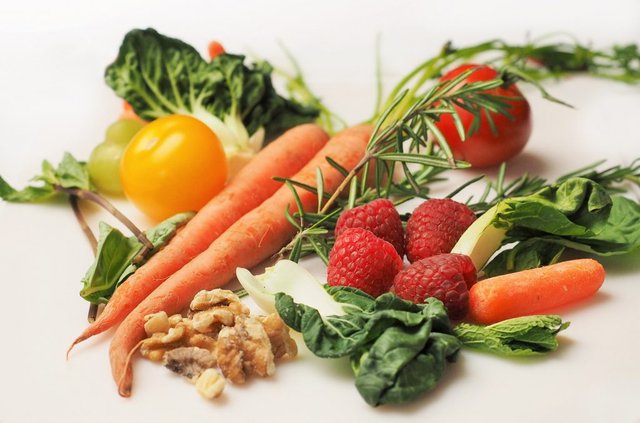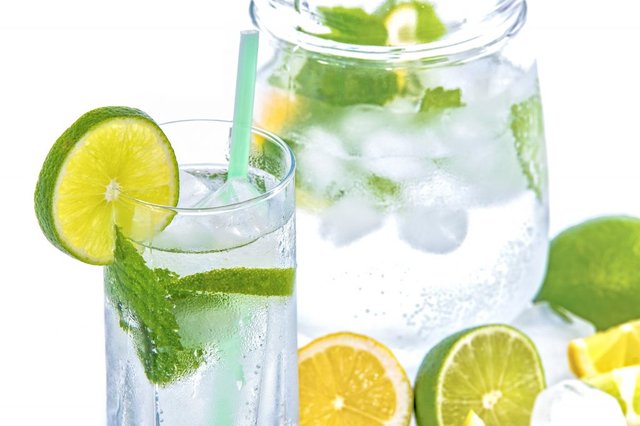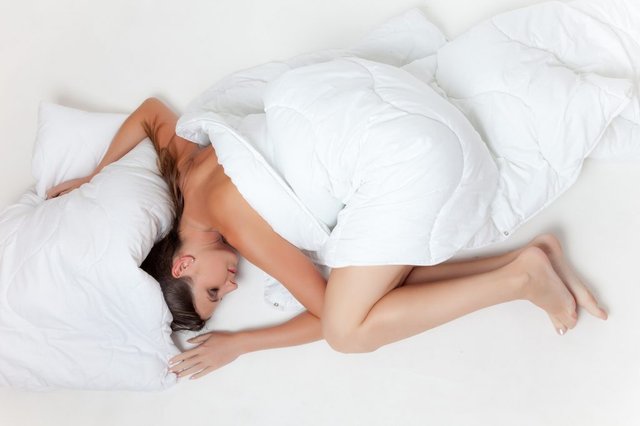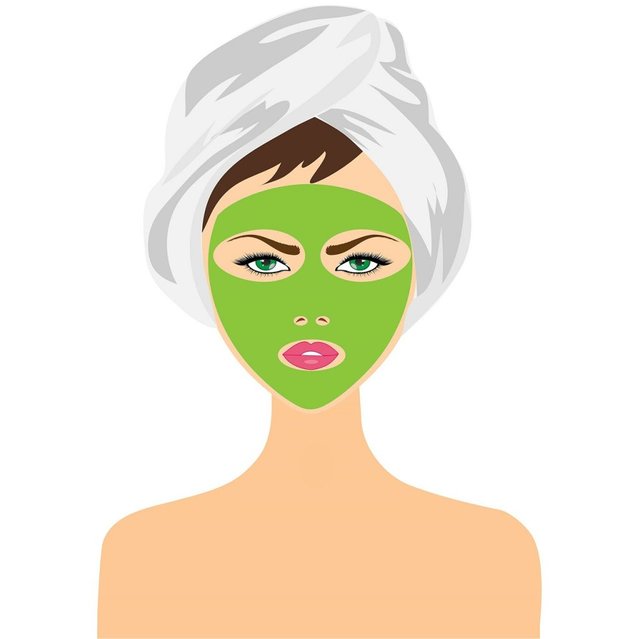Tips for Naturally Radiant and Glowing Skin
Forget about $300 Unicorn water from France or primordial deep sea mud serum treatment, if you want naturally radiant and glowing skin, fancy cosmetics and magical skin-care products have very marginal return on investment whereas focusing your time, effort, and money on the fundamentals will produce dramatic (and surprising) results. Skin-care products have their place, but they should be used as the finishing touches rather than the foundation of your skin-care regimen.
The fundamentals:
Diet
Research shows foods high in beta-carotene (i.e. fruits & vegetables) infuse your skin with a golden glow that's perceived to be more attractive than a sun-tan. That's good news because while sun-kissed skin looks great, prolonged exposure to UV radiation is one of the fastest ways to prematurely age your skin. Carrots, sweet potatoes, tomatoes, broccoli, and spinach are all excellent sources of beta-carotene. Generally speaking, the more intense the color, the higher the fruit or vegetable's beta-carotene content. The key to remember here is it's not a sprint, rather it's a marathon. You can't load up on vegetables one day while neglecting them the rest of the week and expect positive results. Eating fruits and vegetables on a regular basis day after day, week after week, month after month is the way you realize the benefit, with noticeable improvements after 2-3 weeks.
Water intake
Water is a part of your diet, but deserves a special mention when it comes to achieving radiant skin. This is one of the easiest ways to improve your skin tone and overall health. Benefits even extend to improving cognitive performance. Start your day with a tall glass of water immediately upon waking up, before doing anything else. This not only re-hydrates you when you need it most, it also sets the tone for the rest of the day. In order to meet your goals of 8-10 glasses of water a day (2.5 Liters for men, 2.2L for women), set yourself up for success by making it as easy as possible to take a sip of water at any given time.
Consider, in the middle of the day you all of a sudden remember, hey I have a goal of drinking more water. If at this time you need to stop what you're doing in order to get a glass of water, how likely are you to do it? Maybe if this was your New Year's Resolution or something you'd follow it through a few times but eventually it's just going to be too much of a context switch. Take the conscious effort out of the process by making sure a filled water bottle is always within reach. Eventually you'll be taking sips throughout the day as part of your background process. If you love ice water, a double-insulated bottle will keep the liquid ice-cold (or alternatively, piping hot) for the entire day.
Personally I've struggled with chapped lips along with dry knees and elbows nearly my entire life. In the last few years I've also started to suffer from dandruff despite it never being an issue before. I've tried just about every lip balm, moisturizing lotion, and anti-dandruff shampoo on the market, but they are all temporary fixes. When I began starting my day with a glass of water and being more mindful about staying hydrated throughout the day, the dryness in my lips, skin, and scalp "magically" disappeared. How much water should you drink in a day? ~2 Liters is a good target but focus on keeping your pee clear and let your body tell you the rest.
Sun exposure
We all know that prolonged sun exposure leads to wrinkles, premature aging, and potentially skin cancer. While there are some short-term benefits of tanning like temporarily clearing up acne, the long-term trade-offs are akin to racking up credit card debt so you can have that big screen TV in time for Da Big Game. Bottom line, if you want glowing skin for the long-term, use a facial moisturizer with sunscreen before leaving the house. I've had success with the Olay Regenerist SPF 50 lotion which disappears after application, has no fragrance, and doesn't clog pores. It also has the benefit of evening out your skin tone for a small, but noticeable improvement.
Sleep
If you're not getting enough sleep, you're going to look straight up haggard. Sure, there are short term tricks (ex: apply caffeine or Preparation-H to reduce baggy eyes) you can pull, but they are temporary and akin to putting lipstick on a pig. Sleep is when your body repairs itself, and your skin is no exception. A recent study comparing the effect of six vs eight hours of sleep on skin showed dramatically degraded appearance in the six-hour group after just 5 days. One subject experienced pore visibility up by 83%, spots by 23%, and porphyrins on her skin up by 65%. Suffice it to say the amount of sleep you get makes a huge difference in how you look on a day-to-day basis.
A lot of people have trouble falling asleep so here are some tips:
Try and avoid screen-time (computer, smart-phones, etc) for at least an hour before bed. Electronic screens (and even energy efficient lightbulbs) emit a blue light which will disrupt your circadian rhythm and make it much more difficult to fall asleep at night. If you simply must, try reducing the amount of blue light emitted by your device via settings like Night Shift (iPhone) or apps like Twilight (Android). If you use a computer/laptop before bed, try blue-light filtering glasses like these.
Melatonin can help you fall asleep faster and improve your sleep quality, but the 3 mg dose most products have is way too high. Taking this much will often cause you to wake up after a few hours and have a difficult time falling back asleep. Ideal melatonin dose is in the mcg range, so breaking up a 3 mg tablet into tenths (literally) and consuming right before you turn off the lights is the best method.
Cosmetics & Skincare Products
If you have acne which is not serious enough for Accutane, a 10% Benzoyl Peroxide wash is the single most effective OTC product you can buy.
Getting rid of body acne is usually harder to do, but one weird trick that makes a surprising difference is making you are fully toweled off and dry before putting clothes on. You could have the most diligent hygiene process but if you don't fully dry yourself after showering you'll be frustrated with stubborn body acne far past your adolescent years.
Exfoliating your skin will help achieve bright and even skin-tone, especially if you are older and your skin has a harder time naturally sloughing off old cells.
As mentioned earlier, skincare products are those last 5-10% and serve as icing on a solid foundation made of healthy diet, water intake, and limited sun exposure. You can use hundreds, if not thousands of dollars worth of healing mud masks, skin peels, and exotic magical serums and still not approach the skin quality achieved by simply drinking water throughout the day or getting enough (beauty) sleep.
Final Words
Bottom line is there are no shortcuts to naturally vibrant skin. If you want to achieve elite-level, head-turning skin aesthetics it takes dedication to healthy habits (which has benefits far beyond just the effect on your skin tone) over weeks, months, and years. Focus on your own behaviors rather quick fixes you can buy off the shelf. Don't get caught up in the product hype and waste hundreds, if not thousands of dollars on empty promises and placebo. Now don't get me wrong, there are many products out there that can have a significant effect, but more often than not they are of the $5-20 variety you can buy from the supermarket, and not the $300 Unicorn water you can only buy from some French boutique vendor.
Eating your fruits and vegetables, drinking plenty of water, avoiding excessive sun exposure, and getting your beauty rest are the four pillars of naturally radiant and glowing skin.





Excellent post! I've struggled with acne throughout my teenage years, and an interesting remedy that really helps my skin is aloe vera gel. Before bed I apply the gel to my face and then go to bed. It doesn't completely cure it, but it certainly has made an improvement!
Downvoting a post can decrease pending rewards and make it less visible. Common reasons:
Submit
I'm glad you mentioned aloe vera - it's great and I use it in a homemade skin moisturizer. Interesting about helping with acne. Thanks for the heads-up!
Downvoting a post can decrease pending rewards and make it less visible. Common reasons:
Submit